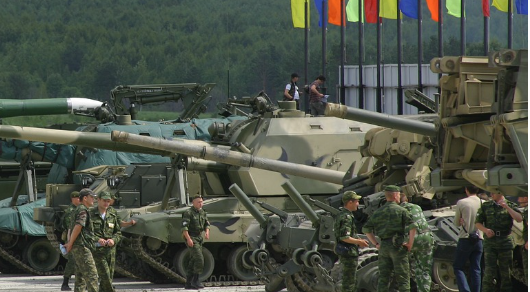
(Photo : pixabay.com)
Financial Relief for Russian Soldiers: Putin's New Move
- Russian President Vladimir Putin has signed a law allowing military personnel and their spouses to write off overdue loans up to 10 million rubles.
- The law, effective from December 1, extends to mobilized soldiers, conscripts, and those who sign a one-year contract with the Russian Armed Forces after this date.
- Not all debts are covered; exclusions include compensation for harm to life or health, child support payments, and penalties related to corruption violations.
- While the law provides immediate relief, it could potentially encourage reckless borrowing, hence the need for responsible implementation and monitoring.
In a significant move, Russian President Vladimir Putin has signed into law a provision that allows participants in the Special Military Operation (SMO) and their spouses to write off overdue loans of up to 10 million rubles, equivalent to approximately $96,000. This legislation, which is set to take effect on December 1, is a significant step in providing financial relief to those who have served their country in the military.
The law is not limited to those currently serving in the military. It extends to mobilized soldiers, conscripts, excluding military academy cadets, and those who sign a minimum one-year contract with the Russian Armed Forces after December 1. The law also extends to their spouses, providing a broad safety net for those associated with the military.
To qualify for this debt relief, loans must already be under court rulings, and enforcement proceedings must be initiated before December 1. The debt amount is capped at 10 million rubles, providing a substantial amount of relief for those who qualify.
Eligibility and Exclusions
However, it's important to note that not all debts are covered under this new law. Certain debts remain excluded, such as compensation for harm to life or health, child support payments, and penalties related to corruption violations. This exclusion ensures that the law does not absolve individuals of their responsibilities towards their families or society.
This move by the Russian government is not without precedent. In the past, several countries have implemented similar measures to alleviate the financial burden on their military personnel. For instance, the United States has the Servicemembers Civil Relief Act (SCRA), which provides a range of protections for individuals entering, called to active duty in the military, or deployed servicemembers. It is intended to postpone or suspend certain civil obligations to enable service members to devote full attention to duty and relieve stress on the family members.
Similarly, in 2015, the United Kingdom introduced a scheme to write off the student loans of military personnel who had served for a minimum of six years. This move was aimed at encouraging more people to join the military and serve their country.
Implications and Considerations
The new law in Russia is a significant step towards acknowledging the sacrifices made by military personnel and their families. It recognizes the financial hardships that they often face and provides a tangible solution to alleviate their burden.
However, it's also crucial to consider the potential implications of this law. While it provides immediate relief, it could also potentially encourage reckless borrowing, knowing that the debt could be written off. Therefore, it's essential that this law is implemented responsibly, with adequate checks and balances in place.
* This is a contributed article and this content does not necessarily represent the views of btin.co.in









